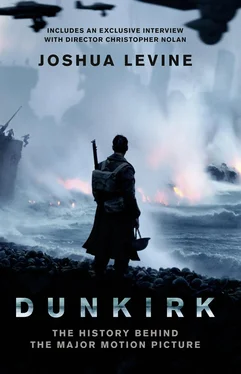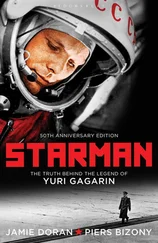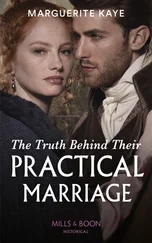JL: Are there any modern parallels? Are people going to see it as something that happened x years ago or are they going to see it as something that could happen again?
CN: One of the great misfortunes of our time, one of the horrible, unfortunate things with the migrant crisis in Europe, is that we are dealing once more with the mechanics and the physics of extraordinary numbers of people trying to leave one country on boats and get to another country. It’s a horrible resonance but it’s very easy in our technologically advanced times to forget how much basic physics come into play. Reality is insurmountable. If you have a vast number of people in one place and they need to get someplace else and they can’t fly and they have to get on boats – to overcrowd the boats, with that human desire for survival … it’s unthinkably horrible to see it on our front pages in this modern day and age. But it’s there. With that going on in the world today, I don’t think you can in any way dismiss the events of Dunkirk as being from another world or another era.
JL: So what war films do you like?
CN: One of my favourite films – one of the films I most admire – is Terence Malick’s Thin Red Line . It has almost no relevance to this film whatsoever, but it has had relevance to a lot of my other films. I think Memento is heavily indebted to Thin Red Line . We did actually screen it before this film, but it wasn’t relevant except in one key textural, stylistic sense, which is that it is timeless. It feels very accessible and contemporary even though it’s about World War II, and that was certainly something that we wanted to try and achieve in the texture of this film, but as far as the artistic underpinnings and the way in which it tells the story it felt very unrelated. I didn’t look at too many war films. We looked at Spielberg’s Saving Private Ryan , which was also instructive because it has a horror movie aesthetic. It has an approach to intensity and gore that’s so absolute and successful that you realise that you have to go elsewhere. You can’t try and compete with that film. It would be like trying to compete with Citizen Kane . I mean it’s an absolute. That’s the horror of war right there. So we went more in a suspense direction. I didn’t watch too many war films because I read – I think it’s reprinted in the liner notes of the Blu-Ray on the Criterion Edition of Thin Red Line – a piece of writing about war films by James Jones, who wrote the novel of the Thin Red Line , and it’s humbling. This is somebody who had been at war and had written about war and he exposes the devices, the bullshit of war movies in a merciless way that to a filmmaker sitting down to write a film set during a real moment in history was extremely daunting. One of the things he says is ‘What more can be said about war after All Quiet on the Western Front ?’ So I went back to look at All Quiet on the Western Front , which I had not seen in many, many years. It’s incredible how all-encompassing it is as a statement about war, how horrible war is. Even though the craft of filmmaking was more in its infancy than now – it’s black and white, it barely has sound – it’s extraordinarily well made. And by virtue of the fact that it’s about Germans but made in the Hollywood system, the anti-nationalist point of view is so powerful, so strong. And that’s what elevates it above any other anti-war film made since. It’s so relentless in its depiction of how awful war is, it’s so unsparing in its depiction of how nationalist myths, jingoistic myths, propagate the idea of war as glorification. I don’t think they’d ever have been allowed to do that if it was made about the Americans and the British.
JL: So is your film a sort of successor to that?
CN: No, not at all. Because I did that reading, that research, it pushed me further in the direction that I had already been heading, not making a war film but making a survival story because that was what I felt confident of doing. I have not fought in a war. It’s my worst nightmare. I can’t imagine doing that. So to me Dunkirk becomes a survival story. The terms of the success or failure for me are survival, and that’s why when one of the soldiers at the end says ‘all we did was survive’, the blind man replies ‘That’s enough.’ Because in the terms of Dunkirk, that was the definition of success. Which is where Churchill’s ‘Inside this defeat there’s victory’ comes from. That’s the particular situation I felt confident trying to tell.
JL: Do you have anyone in your family who fought?
CN: My grandfather died in World War II. He was a navigator on a Lancaster.
JL: Good Lord. Do you know how many missions he survived?
CN: He survived forty-five. He was meant to retire, but I think he died on the forty-sixth. After forty-five, they would then go and instruct new pilots and he was right there. He’s buried in France, and we went to visit his grave while we were making the film, which was very moving. He was in his thirties when he died and he was the old man of the crew, they looked up to him as a father figure. I mean they were kids. They were eighteen, nineteen.
JL: Do you watch your films again?
CN: I do, yes.
JL: And when you watch them do you judge them? How do you watch a film you made several years ago?
CN: You wind up watching them for various reasons fairly soon after you finish, for the video release, for this and that, all kinds of technical reasons. And these days my kids are interested to see The Dark Knight or whatever and I’ll sit and watch it with them. But the reasons go away over time and you stop seeing the films. It’s a very long time since I have seen Memento . There are filmmakers who never watch their films. But I’m interested to because they change over time as you get further away from them. You start appreciating them in a more objective way – what’s good, what’s bad – and they become a little bit more of their time, I suppose.
JL: Yes.
CN: Which isn’t a cheerful thought, because you don’t want to think of yourself as ageing and being very much of your time, but you are …
JL: But how could you be anything else?
CN: Yes, it’s what we all are. But your highest aspiration is to make a film that feels timeless.
JL: Are you worried that the story of Dunkirk is going to be – certainly for a while, for a generation – your story of Dunkirk?
CN: That brings with it a responsibility, yes, and I am certainly mindful of it. But it’s probably one of the reasons why the film doesn’t attempt to be comprehensive. We don’t deal with the politics of the situation. We don’t deal with the larger worldview around it because I think it would be too daunting a responsibility to try and own a complex piece of history that you can’t actually distil into a two-hour dramatic narrative.
I’m comfortable presenting the visceral experience of Dunkirk and having that define for a period of time, for the next few years, people’s ideas of what the experience might have been. I feel qualified to do that, because we researched and we were able to film it comprehensively. But regarding the wider implications of the story, of the history itself, I don’t want to take that on. And I don’t think the film pretends to. The film has a quality of simplicity that allows you to imagine more stories. And that’s very, very deliberate. That’s part of the reason for the structure. We want to allow people the space to understand that there are many, many more experiences of these events.
JL: This is something that I have written in the book:
For every individual who stood on the beach or on the mole, or retreated clinging to a cow, there was a different reality. Set side by side, these realities often contradict each other. To take one element of the story; the beaches covered a large area, they were populated by many thousands of people in varying mental and physical states over nearly ten intense days of rapidly changing conditions. How could these stories not contradict each other? The whole world was present on those beaches.
Читать дальше












